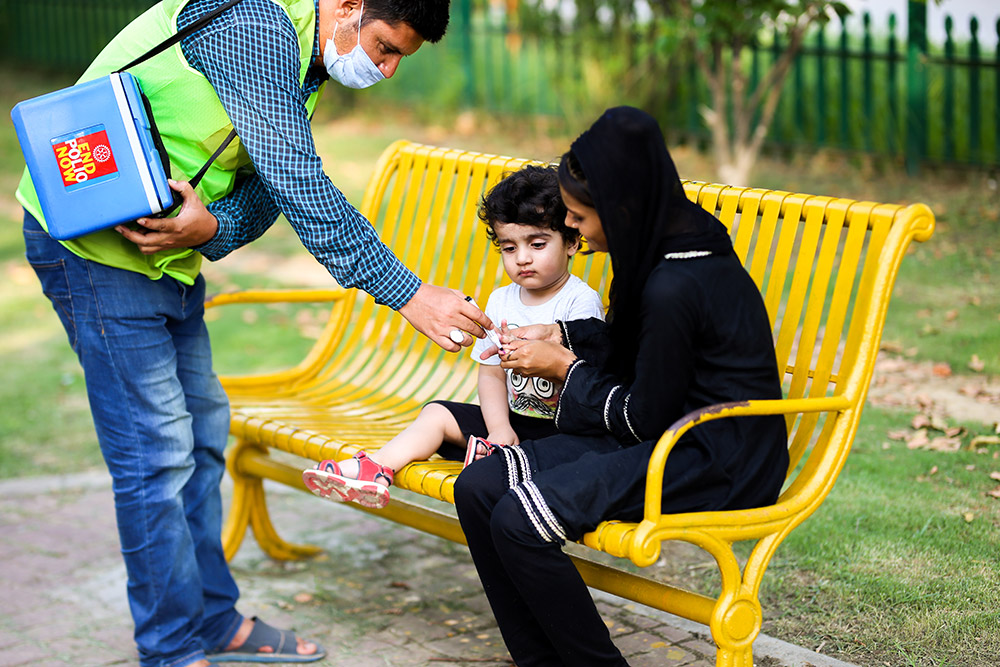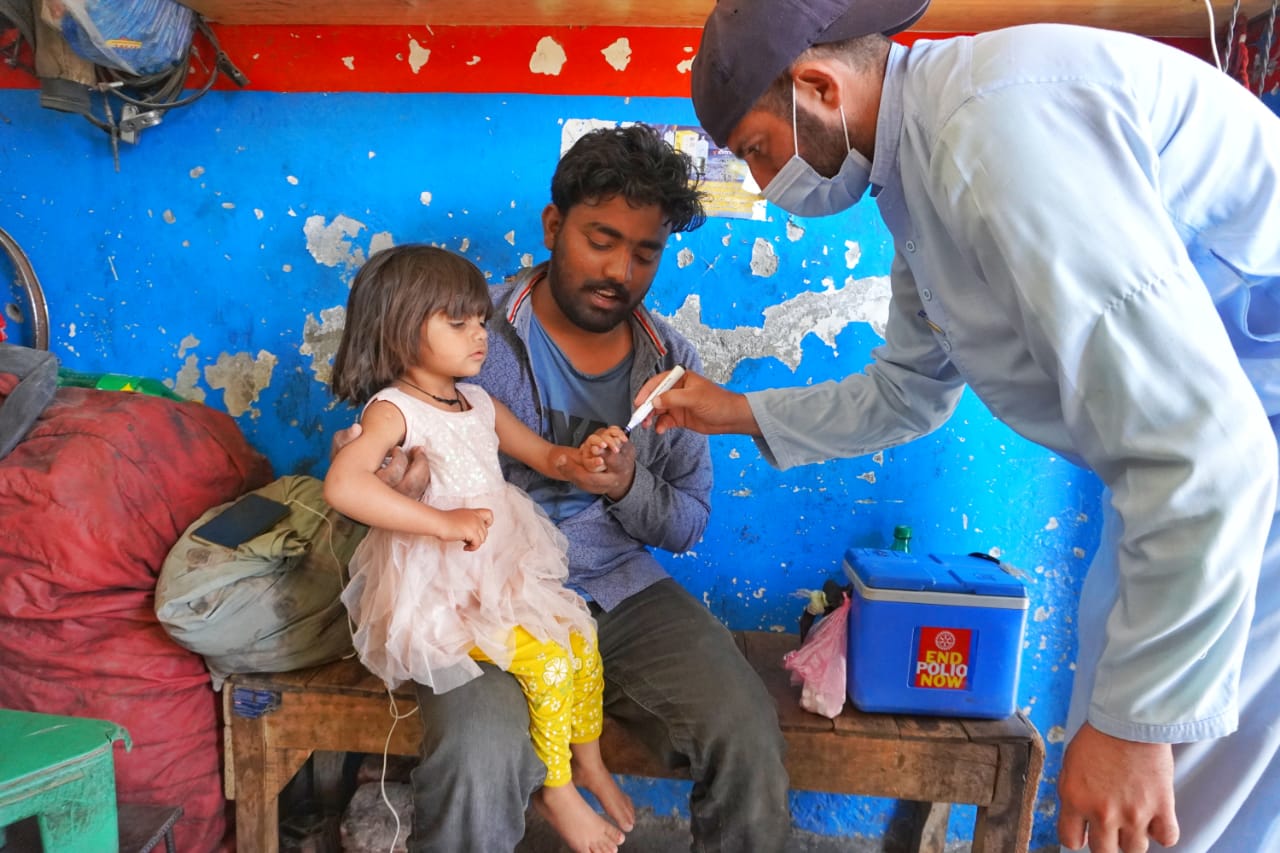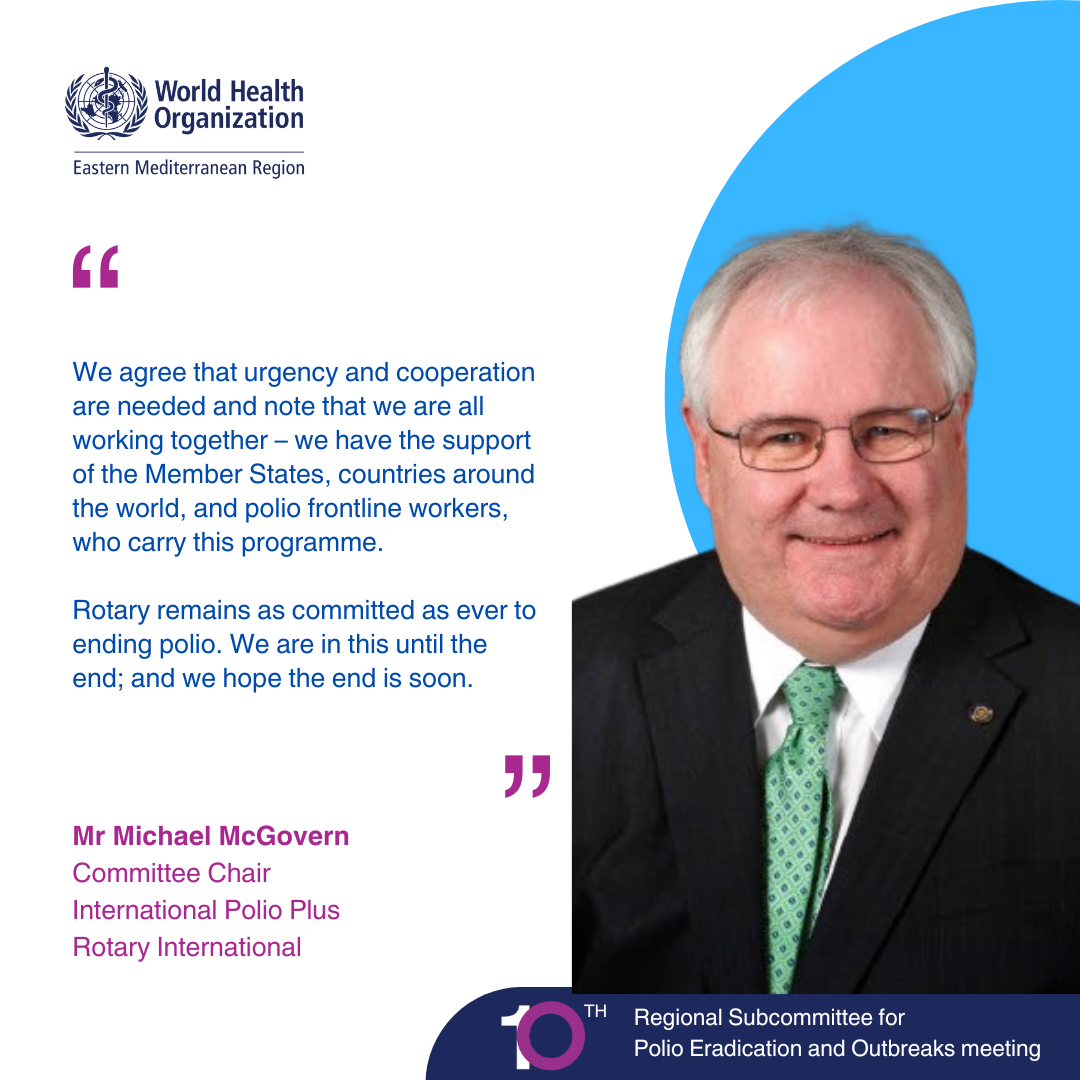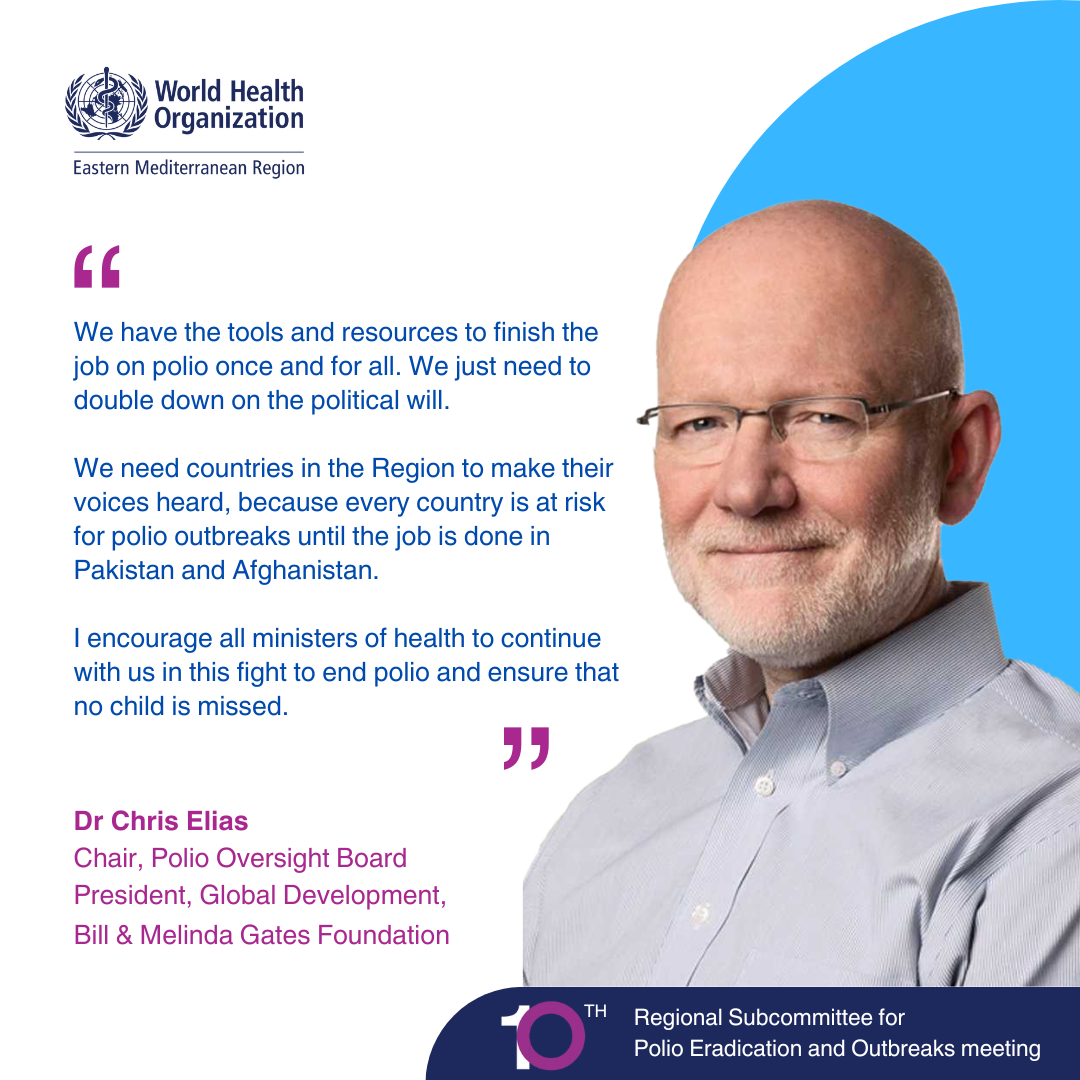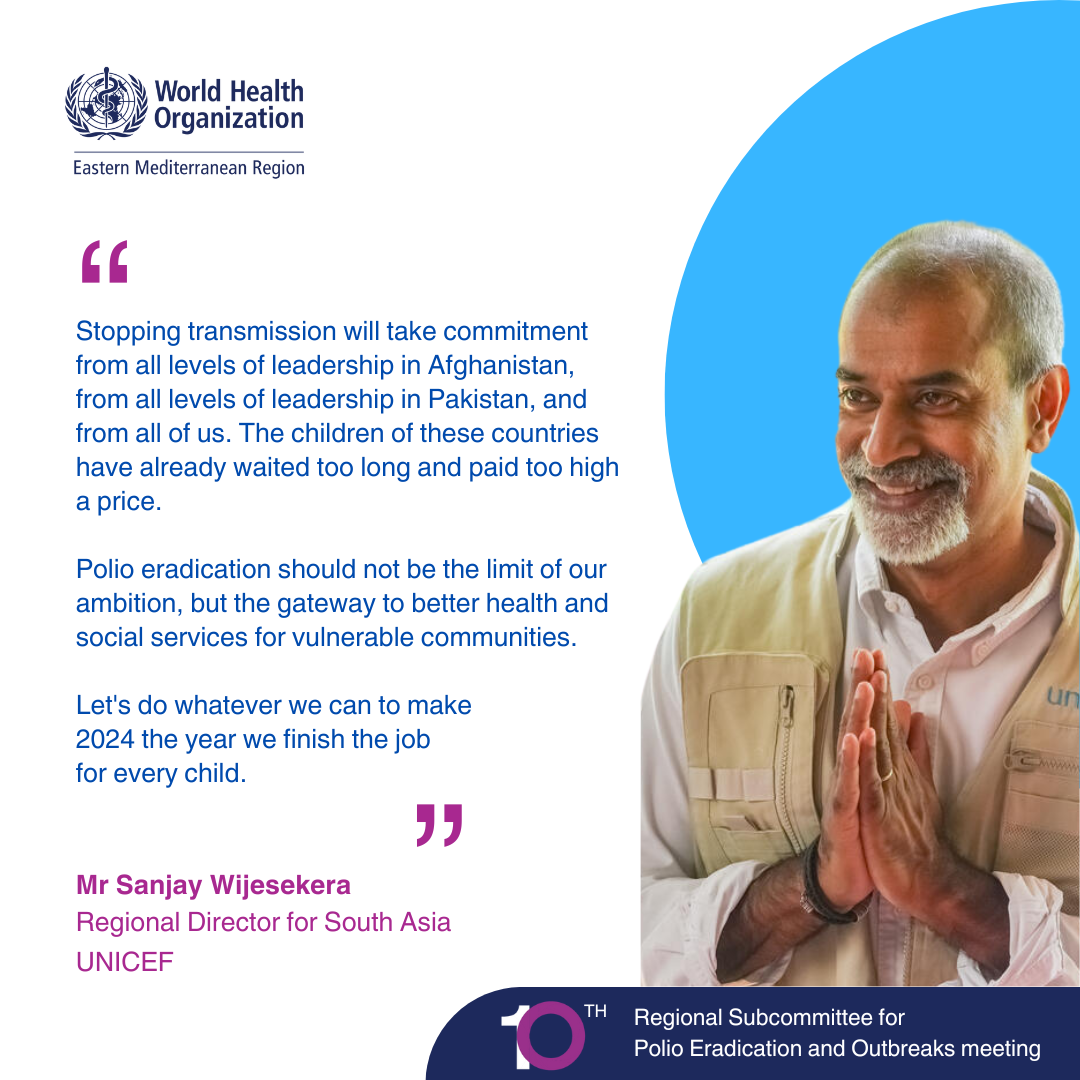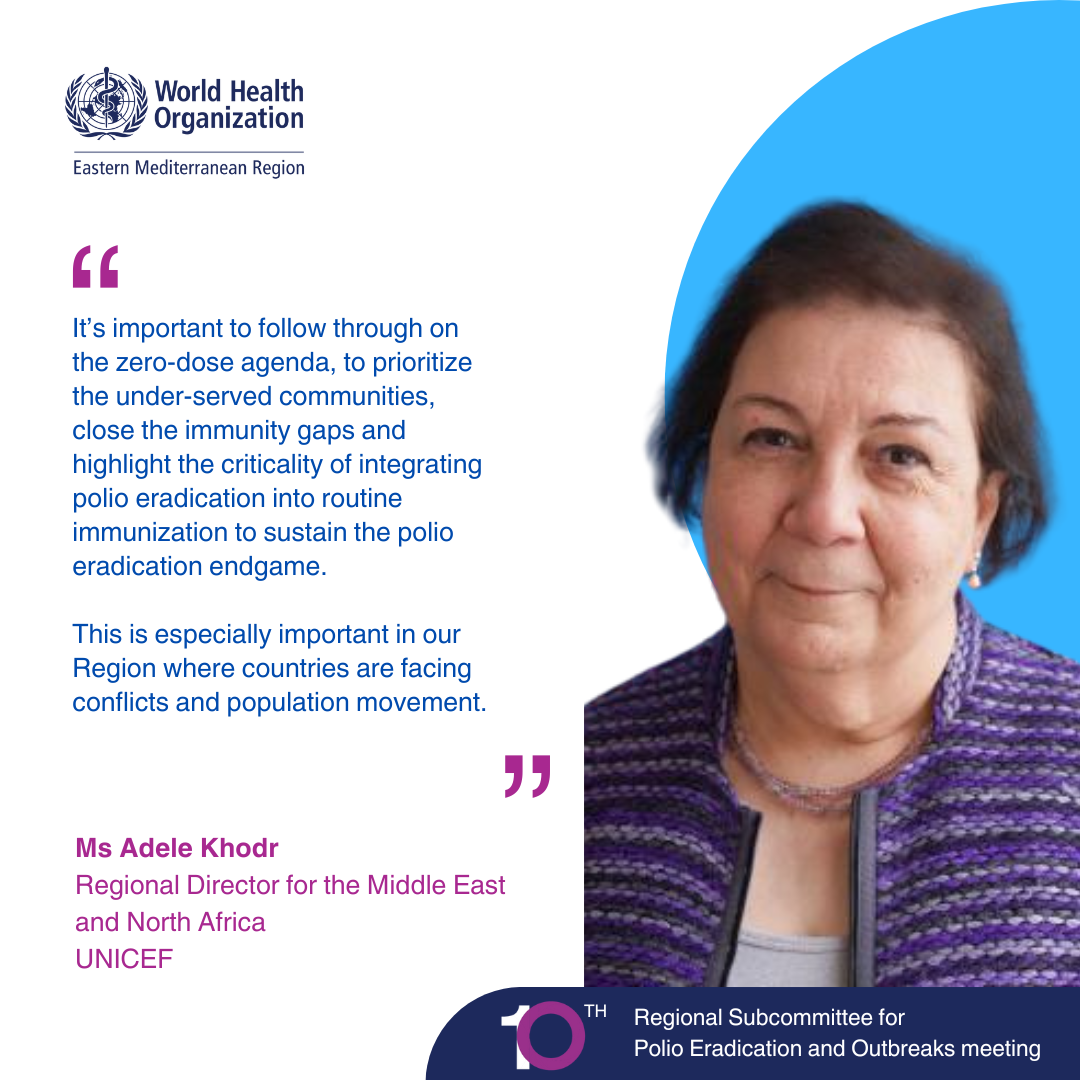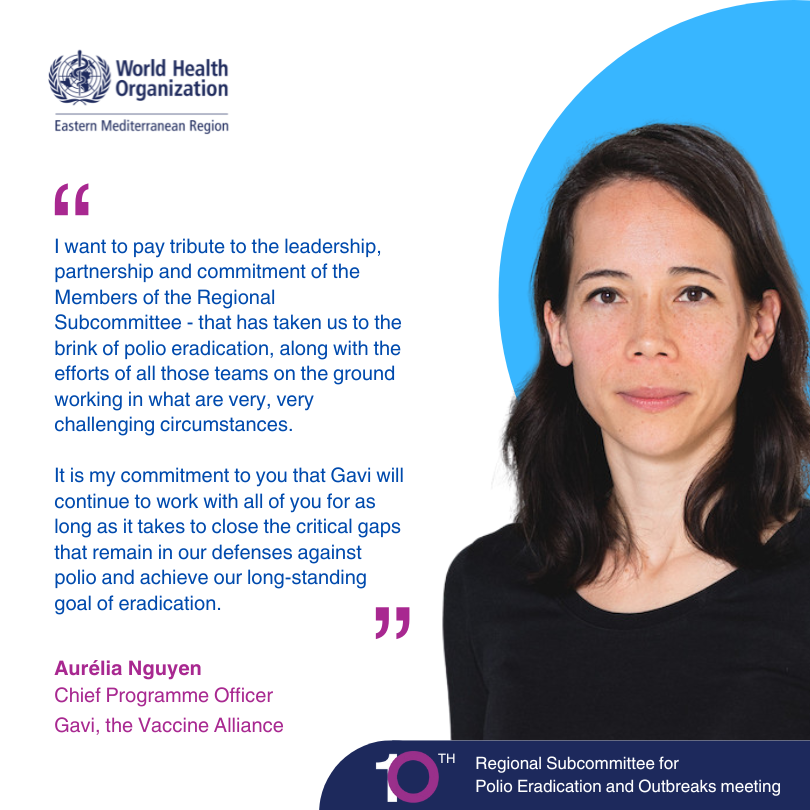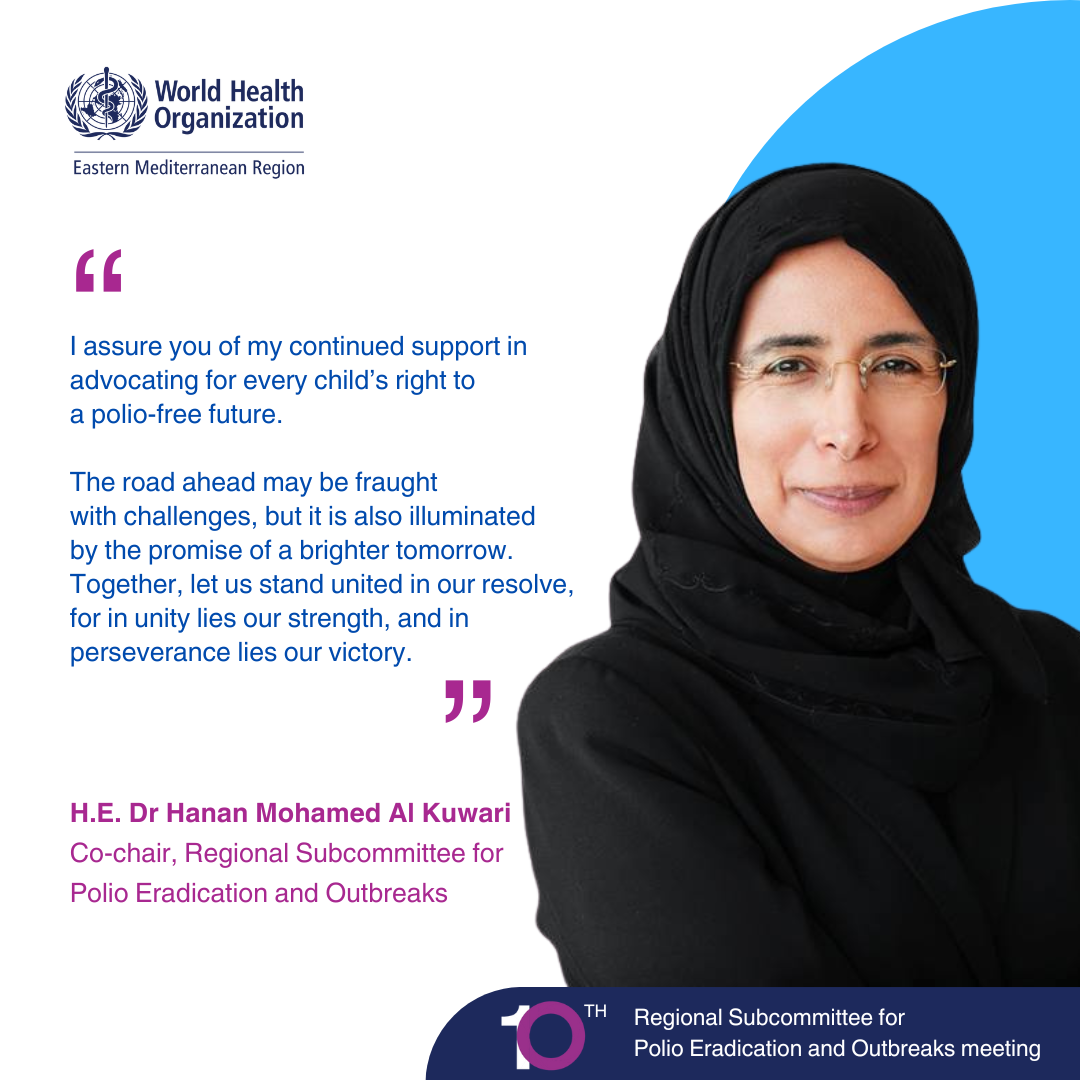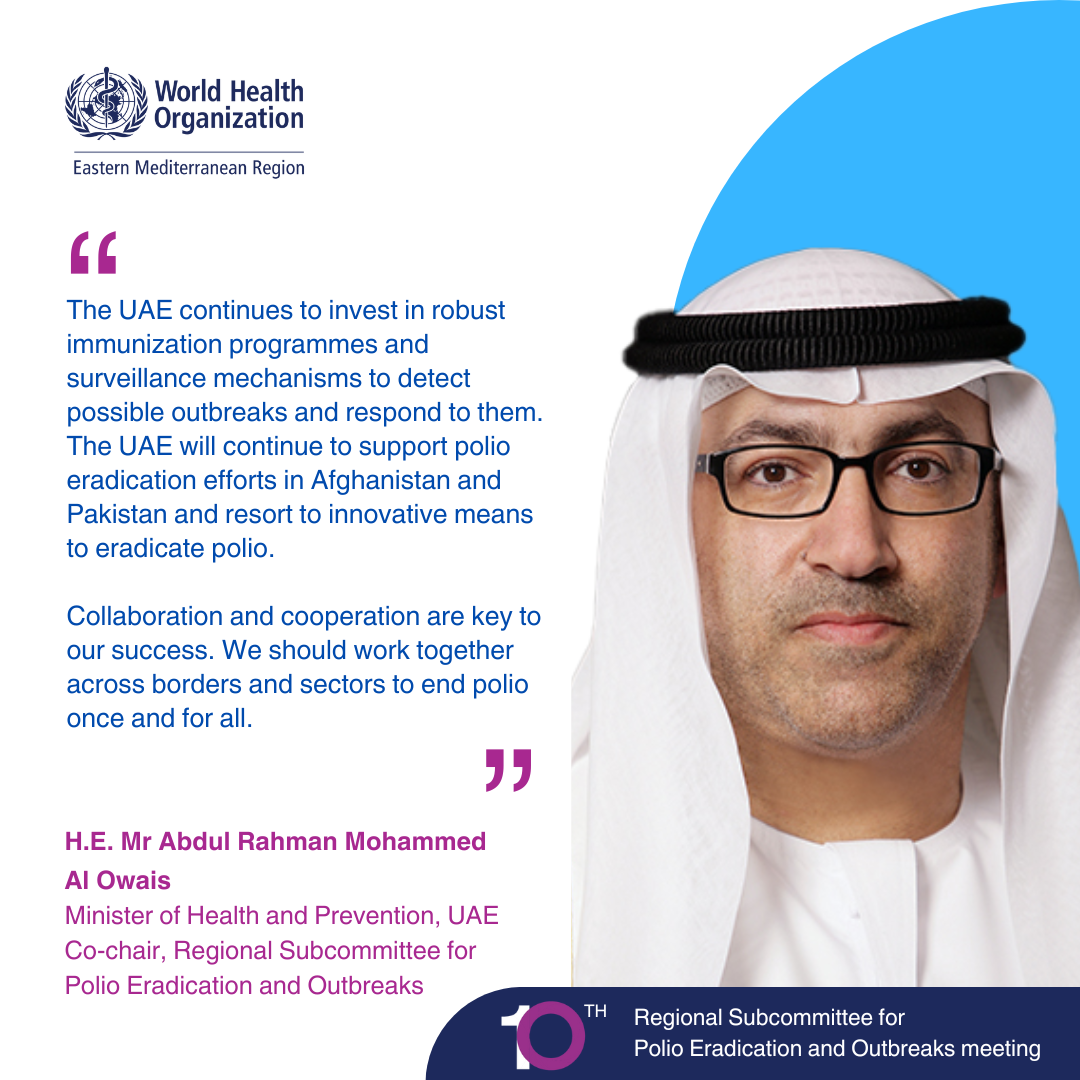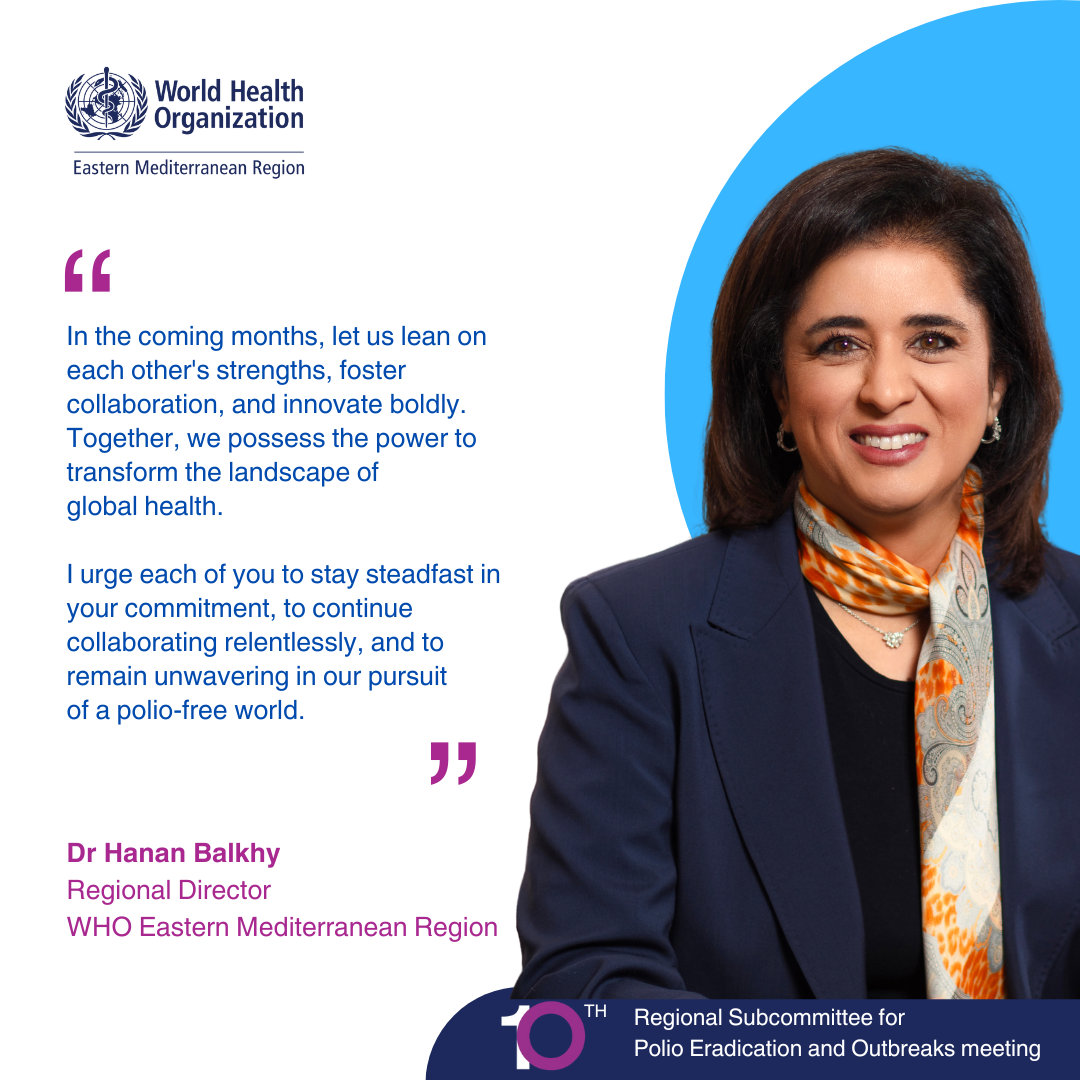Statements
Statement on stopping wild poliovirus transmission in Afghanistan and Pakistan | Arabic
27 April 2025
Statement on stopping wild poliovirus transmission in Afghanistan and Pakistan | Arabic
26 March 2024
Statement on stopping transmission of vaccine-derived poliovirus type 2 in Yemen’s northern governorates and in Somalia | Arabic
26 March 2024
Statement on stopping transmission of vaccine-derived poliovirus type 2 in Yemen’s northern governorates and in Somalia | Arabic
28 February 2023
Statement on stopping wild poliovirus transmission in Afghanistan and Pakistan | Arabic
28 February 2023
Statement on stopping wild poliovirus transmission in Afghanistan and Pakistan
14 June 2022
Statement on stopping the concurrent outbreaks of vaccine-derived poliovirus types 1 and 2 in Yemen
9 February 2022
Regional Subcommittee objectives

Meeting reports
Subcommittee meeting reports
Report of the eleventh meeting of the Regional Subcommittee for Polio Eradication and Outbreaks
Report of the tenth meeting of the Regional Subcommittee for Polio Eradication and Outbreaks
Report of the seventh meeting of the Regional Subcommittee for Polio Eradication and Outbreaks
Poliomyelitis: Polio transition planning and polio post-certification
Report of the fifth meeting of the Regional Subcommittee for Polio Eradication and Outbreaks
Report of the fourth meeting of the Regional Subcommittee for Polio Eradication and Outbreaks
Report of the second meeting of the Regional Subcommittee for Polio Eradication and Oubreaks
Report of the first meeting of the Regional Subcommittee for Polio Eradication and Outbreaks
WHO Governing Bodies Reports and Resolutions
EM/RC71/INF.DOC.1 Eradication of poliomyelitis
EM/RC70/INF.DOC.1 Eradication of poliomyelitis
Poliomyelitis: Poliomyelitis eradication
EM/RC69/INF.DOC.1 Eradication of poliomyelitis
EMR 68 Regional Committee progress report on polio eradication | Arabic | French
EM/RC67/R4. Galvanizing efforts to eradicate polio in the Eastern Mediterranean Region
Progress report from the RC69 2022
WHA 75 two documents (polio and polio transition)
Polio transition planning and polio post-certification
EMR RC67 Regional Committee progress report on polio eradication | Arabic
World Health Assembly 74 poliomyelitis eradication Report by the Director-General
Latest statements from the IHR Emergency Committee for Polio
News
A word from members and partners
Membership and meetings
Members
Co-chairs:
H.E. Ahmed bin Ali Al Sayegh
Minister of Health and Prevention, United Arab Emirates
H.E. Bin Ebrahim bin Saad Al Mahmoud
Minister of Public Health, Qatar
Members
HE Dr Ahmed Robleh Abdilleh
Federal Minister of Health, Djibouti
HE Dr Khaled Abdel Ghaffar
Minister of Health and Population, Arab Republic of Egypt
H.E. Mohammad Reza Zafarghandi
Minister of Health and Medical Education, Islamic Republic of Iran
HE Dr Salih Al Hasnawi
Minister of Health, Iraq
HE Dr Firas Abiad
Minister of Public Health, Lebanon
HE Dr Hilal bin Ali Al Sabti
Minister of Health, Oman
H.E. Syed Mustafa Kamal
Minister of National Health Services, Regulation and Coordination, Pakistan
HE Mr Fahad bin Abdulrahman Al-Jalajel
Minister of Health, Kingdom of Saudi Arabia
HE Dr Ali Haji Adam Abubakar
Federal Minister of Health and Human Services, Somalia
HE Dr Haitham Ibrahim Awadalla
Minister of Health, The Republic of Sudan
H.E. Mustapha Ferjani
Ministre de la santé, Tunis
HE Dr Qasem Muhammad Qasem Buhaibeh
Minister of Health and Population, Yemen











